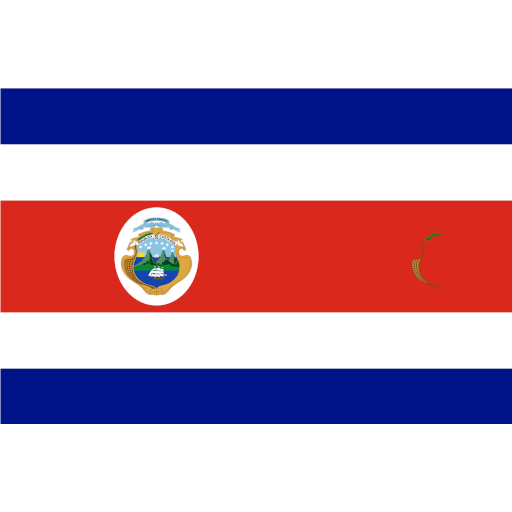In order to keep you informed of relevant developments in customs and foreign trade matters, we share the following update published in the Diario Oficial de la Federación (DOF) on November 19, 2025 of the "Decree Amending, Adding, and Repealing Various Provisions of the Customs Law".
Main Changes:
1) Infrastructure and Technology (Mandatory Interoperability)
- Concessioned customs facilities (within a customs precinct) must have electronic inventories, video surveillance, security, traceability and real-time monitoring, all interoperable with the Electronic Customs System, including continuous remote access for the authority. (Arts. 10, 14, 14A, and 14D)
- Technological agreements will be entered into between customs authorities and the Digital Transformation and Telecommunications Agency for IT management and data analysis. (Art. 6)
2) Documentation and Operations:
- Consolidated Pedimento: must be transmitted no later than Friday of each week for operations conducted from Monday to Sunday of the previous week. (Art. 37A, IV)
- Strengthened electronic file: In addition to the usual documents, it must include documents related to guarantees, CFDI, invoices and/or equivalent documents, electronic transfer for payment or letter of credit, expenses related to freight, insurance and related services, contracts relating to the transaction of the goods, and valuation adjustments supporting the operation (incrementable and decrementable expenses). (Art. 59, V)
- CFDI with Carta Porte complement: added as a document to evidence the lawful possession, transportation, and handling of goods. (Art. 146)
- Ruling requests for tariff classification and NICO when goods may fall under more than one tariff heading or more than one commercial identification number; also adds the possibility of requesting a ruling even when the tariff classification and commercial identification number are unknown. (Art. 47)
- The figure of advance criteria and/or advance rulings is included, as provided in international treaties, which must be processed before the SAT. (Art. 49 Bis)
- Rectification of data in pedimentos: the article is amended to state that rectification may be performed before the activation of the automated selection mechanism, except for cases requiring authorization from the customs authority. (Art. 89)
- Article 89 Bis is added to establish that rectification of the pedimento for application of preferential tariff rates may be performed within the deadlines established in treaties and rules. (Art. 89 Bis)
3) Customs Regimes:
- A definition of Customs Regime is added: “The destination which, in accordance with Title Four of this Law, determines the legal treatment to be applied to goods subject to clearance, control, and oversight by customs authorities, including applicable obligations or restrictions, acts and formalities inherent to it.” (Art. 2, XXII)
- Petroleum products are excluded from certain regimes (temporary importation for processing, transformation, repair, and Strategic Bonded Warehouse), and any others specified in the rules. (Arts. 108, 135, and 135B)
- IMMEX Companies:
(i) The obligation is established to change temporary imports to definitive importation or return them abroad within no more than 60 calendar days as of notice of program cancellation. (Art. 108)
(ii) Transfers of temporarily imported goods: Participants must request, provide, and maintain all information required under Article 59, section V, from the moment the goods entered the temporary import regime until the transfer is completed, including any document or record—established through rules—demonstrating the effective execution of the foreign trade operation.
This documentation must evidence the production process undertaken with the goods, pursuant to applicable rules. (Art. 112)
4) Customs Brokers and Customs Council:
- Customs Brokers: The granting of broker licenses is limited to 20 years, extendable for an equal period. Brokers must undergo certification every three years, pass reliability and psychological exams, and maintain a file with information and documentation validating the tax and customs compliance of their clients (verification against lists under Art. 69-B of the Federal Tax Code). They must maintain and preserve such documentation and make it available to authorities when required, as well as issue CFDI for their services. (Arts. 159 and 162)
- Article 159 Bis is added, creating the Customs Council composed of SHCP, SAT, ANAM, and the Secretariat of Anticorruption and Good Governance, responsible for determining the granting, suspension, cancellation, and extensions of broker licenses and customs agencies. (Art. 159 Bis)
5) Administrative Customs Procedure (PAMA) (Arts. 151, 152, 153, and 155):
- A cause for precautionary seizure is added when temporarily imported goods are not located in registered or declared addresses or cannot be found at those locations.
- Within 10 days following the authority’s receipt of evidence provided by the taxpayer, if additional elements arise that must be verified, the authority may request supplementary information from the taxpayer or third parties. Such request must be complied with within 10 days after notification.
- Suspension of procedural deadlines is established when any of the grounds provided in Article 46-A, second paragraph of the Federal Tax Code, are met.
6) Courier and Express Delivery Companies (Arts. 88 Bis and 88 Ter; 88):
- Articles 88 Bis and 88 Ter are added.
- Article 88 Bis creates a simplified customs clearance procedure for courier and express delivery companies, subject to prior authorization by ANAM (valid for up to 2 years, extendable).
Companies must:
-
- Maintain a risk analysis system enabling verification of customs and foreign trade compliance of goods, preserving documentation and information regarding value, description, nature, and origin.
- Comply with formalities and obligations established in the rules.
- Provide customs authorities with online access to such system.
Duties are paid through a single factor published by the Ministry, and operations under this procedure are non-deductible for income tax.
Article 88 Ter establishes causes for cancellation of simplified procedure authorization, such as noncompliance with requirements, conditions, or obligations, among others listed in the Customs Law or the authorization itself.
7) Infractions Related to Import or Export (Art. 176):
- Three subsections (XII to XIV) are added, establishing infractions for failure to comply with obligations set by SAT in rules for: (i) entry or exit through unauthorized locations; (ii) obligations under Art. 59, except section I; and (iii) proper operation of the simplified clearance procedure under Art. 88 Bis for authorized courier companies.
8) Fines Related to Import or Export (Art. 178):
- 250% to 300% of the commercial value of goods in severe cases (prohibited goods, failure to comply with non-tariff regulations or antidumping duties, false/existing supplier or importer information, etc.).
- $1,500,000.00 to $2,000,000.00 for failure to comply with entry/exit obligations through authorized locations.
- $800,000.00 to $1,000,000.00 for noncompliance with the simplified clearance procedure for courier companies.
9) Infractions Related to the Destination of Goods (Art. 182):
- A new subsection VIII is added: in the bonded warehouse regime, failure to present goods within the allowed arrival period to the general bonded warehouse.
10) Fines Related to Transmission of Valuation Information (Art. 184-B):
- Fines of $53,500.00 to $106,970.00 when inaccurate or false data regarding the value of goods (COVE) or other commercialization data are transmitted, or when incomplete or inaccurate information is transmitted regarding the description and individual identification of the goods presented for clearance.
11) Fines for Infractions Related to Submission of Documentation and Declarations (Art. 185):
When incomplete or inaccurate information is transmitted regarding description and individual identification of goods, a fine of $5,000.00 to $8,000.00 will apply for every subsequent ten-day period until the required documents or reports related to the pedimento are submitted. The fine will not exceed the value of the goods.
12) Effective Dates: General effective date of the Decree: January 1, 2026.
- Art. 86A, section I, second paragraph: February 1, 2026.
- Arts. 86A section III; 106 sections V and VI; 107 and 145: April 1, 2026.
- Guidelines of the Customs Council (Art. 159 Bis): March 31, 2026.
- Reform to the Regulations of the Customs Law: April 30, 2026.
- Technological agreements (Art. 6): June 29, 2026.
Document for consultation: Diario Oficial de la Federación
J.A. DEL RÍO offers a wide array of specialized consulting services to assist you with these and other matters, in order to ensure that your project complies with the applicable characteristics contained in this agreement.
If you have any questions, J.A. DEL RÍO can provide you with our experts to advise in matters concerning compliance with your legal and tax obligations. Once again, please let us know if we may be of any further assistance to you at: contacto@jadelrio.com.























